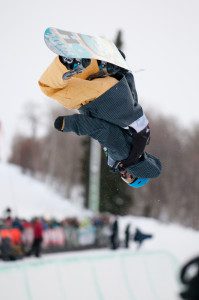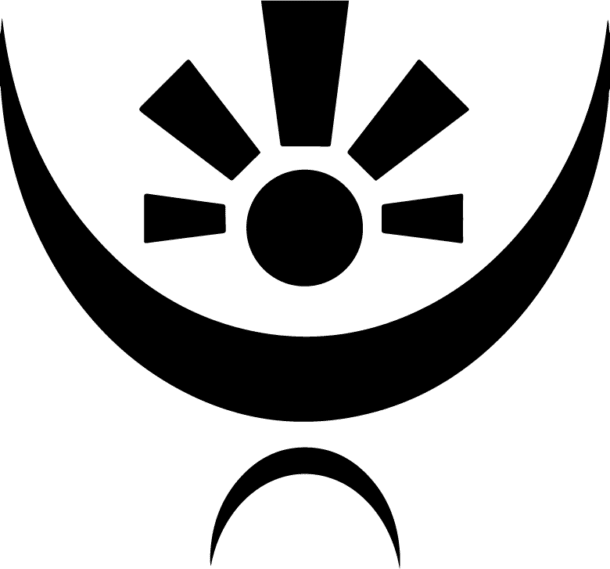Concussions and Traumatic Brain Injuries: Signs, Symptoms, and Therapeutic Options
“Perhaps the shortest and most powerful prayer in human language is help”
~ Thomas Keating
Concussions and traumatic brain injuries have been receiving a lot of public attention lately, especially with highly publicized suicides of NFL and college football players. Certain sports have taken the brunt of criticism such as football and hockey, yet the risk of concussions extends far beyond. Head traumas can occur in marital arts, soccer, horseback riding, swimming, diving, surfing, basketball, water skiing, wakeboarding, and many other sports. Military veterans, soldiers, and private security personnel exposed to blast trauma overseas also make up a large group of people suffering from the long-term effects of traumatic brain injuries. Often this is coupled with post-traumatic stress disorder and other complications. Research over the last few decades has come a long way in understanding not only the physical damage that occurs from brain injury, but also the disruption with sleep cycles, cognitive functioning, and psychological well being. Yet when it comes to therapeutic options for addressing the symptoms of concussions, and post-concussion syndrome, there is a gaping hole in medicine, leaving many feeling lost and hopeless. It doesn’t have to be this way. Acupuncture and other natural therapies can provide support and relief that many are looking for.
People suffering from traumatic brain injuries often don’t realize the subtle ways their brains may be affected, or fail to make the connection between the time they had the injury and the subsequent physical, cognitive, behavioral or emotional changes that follow months or years later. For these reasons, it is important to increase public awareness about the symptoms of concussions, and traumatic brain injuries, as well as offer solutions in the recovery and management.
Traumatic brain injuries are often classified as mild, moderate, or severe, yet there is a lot of room for interpretation even amongst those distinctions. Below is a list of possible symptoms that can be linked to a traumatic brain injury, and seen in people with a history of multiple concussions.
| Physical/Vestibular | Cognitive | Emotional/Behavioral |
| Headache | Disorientation (acutely) | Irritability |
| Nausea | Feeling slowed down | Anger |
| Vomiting | Feeling mentally foggy | Sadness |
| Fatigue | Difficulty concentrating | Nervousness |
| Balance Problems | Difficulty with short-term memory | Emotional outbursts |
| Dizziness | Difficulty learning new information | Increased impulsiveness |
| Sleeping more than usual | Difficulty prioritizing and planning | Depression |
| Sleeping less than usual | Difficulty in finding coping strategies | |
| Trouble falling asleep | Decreased attention control | |
| Sensitivity to light | Drowsiness | |
| Sensitivity to noise | Decreased reaction time | |
| Numbness or tingling | ||
| Visual problems |
Therapeutic Considerations
Acupuncture and Chinese Herbal Medicine have been around for thousands of years. The ancient Chinese medicine textbooks, in regards to head trauma,  discuss treatment strategies for loss of consciousness, brain swelling, mental fatigue, seizures, and coma. There are acupuncture points that can be used in acute settings, such as the one directly below the nose, to help revive people that have been knocked unconscious, and there are points that help to improve blood flow and regulate the autonomic nervous system to address ongoing post-concussion symptoms. Several Chinese herbal formulas described below, have been researched and shown to have excellent clinical effects in helping people recover from concussions specifically. In my practice, I combine acupuncture with other hands-on therapies to address post-concussion symptoms such as nausea, dizziness, headaches, migraines, mental fatigue, insomnia and emotional issues with significant outcomes and improvements.
discuss treatment strategies for loss of consciousness, brain swelling, mental fatigue, seizures, and coma. There are acupuncture points that can be used in acute settings, such as the one directly below the nose, to help revive people that have been knocked unconscious, and there are points that help to improve blood flow and regulate the autonomic nervous system to address ongoing post-concussion symptoms. Several Chinese herbal formulas described below, have been researched and shown to have excellent clinical effects in helping people recover from concussions specifically. In my practice, I combine acupuncture with other hands-on therapies to address post-concussion symptoms such as nausea, dizziness, headaches, migraines, mental fatigue, insomnia and emotional issues with significant outcomes and improvements.
Craniosacral Therapy is a gentle, hands-on therapy that comes from the osteopathic tradition. It utilizes subtle palpation techniques to address cranial alignment and cerebrospinal fluid dynamics in the brain and spinal chord. Its therapeutic effects are often seen in concussions, whiplash, neck and back pain, headaches, migraines, insomnia, anxiety, and depression. To learn more, click here.
Specific supplements and herbs can help to improve blood flow to the brain, address inflammation and oxidative damage that following traumatic brain injuries, and provide key nutrients to support brain health. Each person has a unique presentation of symptoms and dosing requirements, so there is never a one-size-fits-all approach to nutrition. This is why it is important to see a trained practitioner who utilizes high quality supplements, otherwise, it’s possible to do more harm than good (See Nine Reasons To Toss Your MultiVitamin). Here are just a few key nutrients that I have found to have noticeable benefit:
Glutathione plays an important role in addressing the oxidative damage that occurs following traumatic brain injury. N-acetylcysteine (NAC) and L-Glutamine are involved in the production of intracellular glutathione. Supplementation of both help to increase glutathione levels. Alpha Lipoic Acid is a powerful anti-oxidant that aids in the recycling of glutathione, allowing it to remain active in the cells longer.
NADH can help in addressing brain fatigue and mental fogginess. It is most effective in a sublingual form.
DHA is a lipid found in fish oil and plants that is essential for brain health and prevents the degeneration of neurons. It is currently being researched in a number of different neurodegenerative diseases, and can be considered an important daily supplement for overall brain and nervous system health.
Green Tea Extract also functions as an antioxidant and increases alertness and mental energy.
Vinpocetin dilates blood vessels, thereby improving blood flow to the brain. It also promotes the beneficial forms of nitric oxide in the brain.
Holy Basil: Studies have shown that concussions affect the autonomic nervous system, leading to an increased heart rate during exercise and over-activity of the sympathetic nervous system. Holy Basil helps to regulate the sympathetic nervous system and decrease cortisol levels. It is often helpful for insomnia, anxiety, irritability, impatience, and decreased ability to handle stress.
Xue Fu Zhu Yu Tang (Drive Out Stasis in the Mansion of the Blood Decoction) is a Chinese herbal formula that strongly increases blood flow and relives pain, specifically in the upper body, neck, and head. Specific indications suggesting the use of this formula include sharp stabbing pain, insomnia, irritability, restlessness, dry heaving and vomiting.
Fu Yuan Huo Xue Tang (Revive Health by Invigorating the Blood Decoction) also strongly promotes blood circulation, and treats trauma from sports injuries that include bruising, swelling and pain. Indications for this formula include concussion, pain, swelling, inflammation, heat, bruising, numbness and tingling.
Zhen Gan Xi Feng Tang (Sedate the Liver and Extinguish Wind Decoction) is indicated for concussions when they are accompanied by headaches, dizziness, vertigo, swelling or redness in the eyes, a warm sensation in the head, red face, tinnitus, irritability, and anger.
Chinese herbal formulas like the three above are often modified and customized based on the specific symptomatic presentation of each person. To find out more about how acupuncture and natural therapies can help in the recovery and management of concussions and traumatic brain injuries, please call me, Amy Moll L.Ac., at 214-617-2595, or e-mail amymoll@HRAclinics.com.
References:
1. An, Y.S., Moon, S.K., Min, I.K., and Kim, D.Y. (2009). Changes in regional cerebral blood flow and glucose metabolism following electroacupuncture at Li 4 and Li 11 in normal volunteers. The Journal of Alternative and Complementary Medicine 15, 1075-1081.
2. Backer, M., Hammes, M.G., Valet, M., Deppe, M., Conrad, B., Tolle, T.R., and Dobos, G. (2002). Different modes of manual acupuncture stimulation differentially modulate cerebral blood flow velocity, artierial blood pressure and heart rate in human subjects. Neuroscience Letters 333:203-206.
3. Bilska, A., & L, W. (2005). Lipoic Acid – the drug of the future? Pharmacological Reports, 57, 570-577.
4. Byeon, H.S., Moon, S.K., Park, S.U., Jung, W.S., Park, J.M., Ko, C.N., Cho, K.H., Kim, Y.S., and Bae, H.S. (2011). Effects of GV20 acupuncture on cerebral blood flow velocity of middle cerebral artery and anterior cerebral artery territories, and CO2 reactivity during hypocapnia in normal subjects. The Journal of Alternative and Complementary Medicine 17:219-224.
5. Chen, J. and Chen T. (2009). Chinese herbal formulas and applications: Pharmacological effects & clinical research. Art of Medicine Press: City of Industry, CA.
6. Hsieh, J., Tu, C., Chen, F., Chen, M., Yeh, T., Cheng, H., Wu, Y., Liu, R., and Ho, L. (2001). Activation of the hypothalamus characterizes the acupuncture stimulation at the analgesic point in humans: a positron emission tomography study. Neuroscience Letters 307:105-108.
7. Leddy, J., Kozlowski, K., Fung, M., Pendergast, D., and Willer, B. (2007). Regulatory and autoregulatory physiological dysfunction as a primary characteristic of post concussion syndrome: Implications for treatment. NeuroRehabilitation, 22, 199-205.
8. Newberg, A.B., LaRiccia, P.J., Lee, B.Y., Farrar, J.T., Lee, L., and Alavai, A. (2005). Cerebral blood flow effects of pain and acupuncture: a preliminary single-photon emission computed tomography imaging study. J. Neuroimaging 15:43-49.
9. Quirico PE., Allais, G., Ferrando, M., de Lorenzo, C., Burzio, C., Bergandi, F., Rolando, S., Schiapparelli, P., and Benedetto, C. (2014). Effects of the acupoints PC 6 Neiguan and LR 3 Taichong on cerebral blood flow in normal subjects and in migraine patients. Neurol Sci 35:S129-133.


